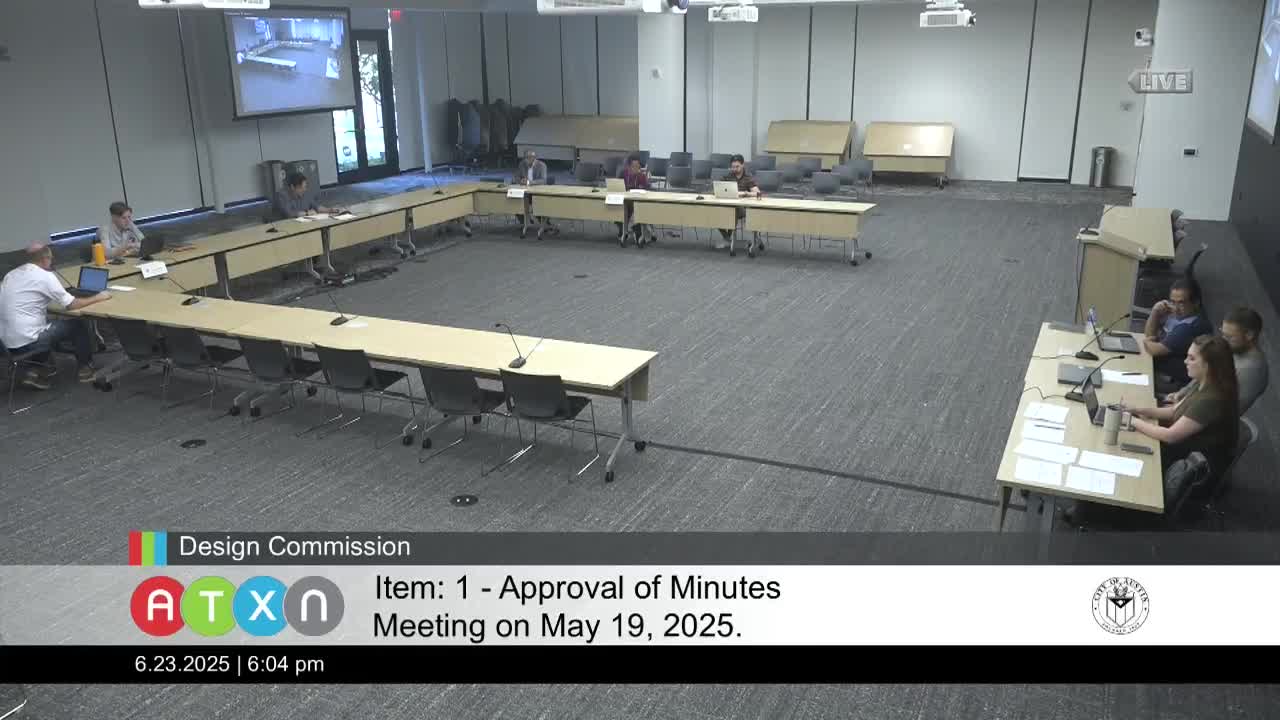Austin's Watershed Protection Discusses Bird Friendly Design to Reduce Collisions
June 23, 2025 | Austin, Travis County, Texas
This article was created by AI summarizing key points discussed. AI makes mistakes, so for full details and context, please refer to the video of the full meeting. Please report any errors so we can fix them. Report an error »

A significant focus on bird-friendly design emerged during the recent government meeting in Austin, where Leslie Lilly, the Environmental Conservation Program Manager with Watershed Protection, presented a comprehensive plan to address the alarming issue of bird collisions with buildings. This initiative stems from a resolution passed in November 2024, aimed at integrating bird-friendly practices into city policies and new construction guidelines.
Lilly highlighted the critical problem: birds often collide with glass structures because they cannot perceive the glass itself, mistaking reflections for open space. With Austin's location in the Central Flyway, where millions of migratory birds pass through, the city faces a unique responsibility to mitigate these collisions. An estimated one billion birds die annually in North America due to such accidents, underscoring the urgency of the matter.
The presentation outlined various strategies for creating bird-friendly buildings, including the use of specialized glass that is marked or patterned to be visible to birds, as well as implementing lighting solutions that minimize disorientation during nighttime migration. Examples of successful bird-friendly designs from other cities, such as New York's Local Law 15, were discussed, showcasing how mandated changes can lead to significant reductions in bird fatalities.
Commissioners expressed support for the initiative, with discussions revolving around updating urban design guidelines to include bird-safe glazing requirements for new buildings. The proposed measures aim to enhance both environmental sustainability and public safety, as well-designed lighting can benefit both wildlife and human communities.
As the city moves forward, the next steps include stakeholder engagement and a feasibility analysis to assess the costs and implications of implementing these bird-friendly designs. The anticipated recommendations will be presented to the council in the fall, marking a pivotal step in Austin's commitment to protecting its avian populations while fostering a sustainable urban environment.
Lilly highlighted the critical problem: birds often collide with glass structures because they cannot perceive the glass itself, mistaking reflections for open space. With Austin's location in the Central Flyway, where millions of migratory birds pass through, the city faces a unique responsibility to mitigate these collisions. An estimated one billion birds die annually in North America due to such accidents, underscoring the urgency of the matter.
The presentation outlined various strategies for creating bird-friendly buildings, including the use of specialized glass that is marked or patterned to be visible to birds, as well as implementing lighting solutions that minimize disorientation during nighttime migration. Examples of successful bird-friendly designs from other cities, such as New York's Local Law 15, were discussed, showcasing how mandated changes can lead to significant reductions in bird fatalities.
Commissioners expressed support for the initiative, with discussions revolving around updating urban design guidelines to include bird-safe glazing requirements for new buildings. The proposed measures aim to enhance both environmental sustainability and public safety, as well-designed lighting can benefit both wildlife and human communities.
As the city moves forward, the next steps include stakeholder engagement and a feasibility analysis to assess the costs and implications of implementing these bird-friendly designs. The anticipated recommendations will be presented to the council in the fall, marking a pivotal step in Austin's commitment to protecting its avian populations while fostering a sustainable urban environment.
View full meeting
This article is based on a recent meeting—watch the full video and explore the complete transcript for deeper insights into the discussion.
View full meeting
